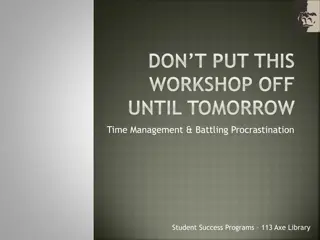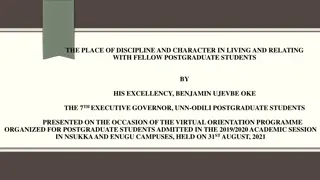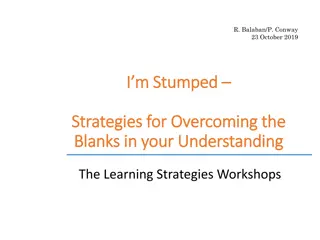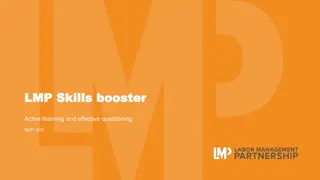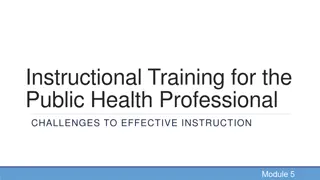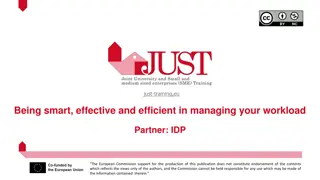Effective Strategies to Overcome Procrastination
Understand the different types of procrastination - anxious, plenty-of-time, perfectionist - and their solutions. Recognize the root causes of procrastination and implement practical tips like setting deadlines, creating schedules, logging out of social media, and seeking accountability from study groups. Learn how to break down tasks, combat negative thoughts, and manage anxiety to boost productivity and achieve success.
Download Presentation

Please find below an Image/Link to download the presentation.
The content on the website is provided AS IS for your information and personal use only. It may not be sold, licensed, or shared on other websites without obtaining consent from the author. Download presentation by click this link. If you encounter any issues during the download, it is possible that the publisher has removed the file from their server.
E N D
Presentation Transcript
How to Curb Procrastination Brought to you by the Student Success Center
What is Procrastination? Do you consider yourself a procrastinator? What does it look like when you procrastinate? What are you feeling when you procrastinate?
3 Types of Procrastination Anxious Procrastination: a mechanism for coping with the anxiety associated with starting or completing any task or decision Plenty-of-Time Procrastination: caused by a false sense of security, that there is plenty enough time to start a finish a project Perfectionist Procrastination: caused by the fear of not being able to perfectly complete a project
Anxious & Perfectionist Procrastination Problem: Solution: 1. Recognize the anxiety 2. Just start the project 3. Break down the project into small tasks 4. Replace negative thoughts with positive ones Procrastination leads to more anxiety.
Plenty of Time Procrastination Problem: The false sense of security coming from having a far-off due date, leads students to turn in incomplete assignments, or putting minimal effort into an assignment. Solution: 1. Recognize the false sense of security 2. Create a new due date, before the real one 3. Change your frame of mind.
General Tips to Stop Procrastination Log out of social media accounts Turn off or hide game consoles Create a schedule, a to-do list, and track assignments on a calendar Set a timer when working assignments, try to finish before the timer goes off Meditate when you are feeling stressed about an assignment Join a study group or have friends and/or classmates hold you accountable
Procrastination Walk-Through: Problem: Solution: Boomer must create and give a presentation for his Public Speaking class. He has one month until his in- class presentation. Boomer wants to impress the class and the instructor with his presentation skills, but he feel anxious. He wants to live up to his own standards and get a perfect grade on the project. Boomer also feels that he has plenty of time to finish the project, so he prioritizes other class assignments and his social life. Which type of procrastination is Boomer experiencing? How can Boomer stop himself from procrastinating?
Thank you for attending this workshop!




